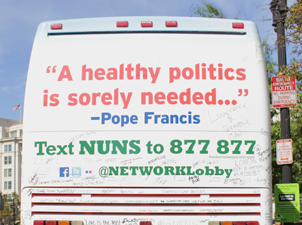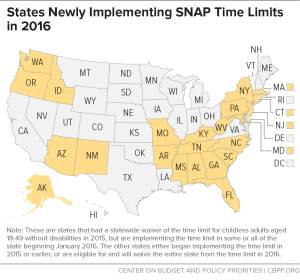
NETWORK Lobby’s Federal Budget Priorities
Download as a print-friendly PDF to share with your friends, or elected officials!
NETWORK believes the federal budget is a moral document that reflects the priorities of our nation. Our budget must prioritize human needs programs, ensure funding to care for vulnerable members of our society, restore economic opportunity, and invest in community. The challenges facing our nation and our world are serious and require a serious response from government.
The Budget Reality
Since 2010, powerful forces have converged to use the federal budget as a vehicle to lower the federal deficit by cutting social spending. These cuts are drastic and destructive, and they undermine programs that provide critical assistance to our nation’s most vulnerable. Meanwhile, tax breaks for wealthy corporations and outsized military spending, which cost billions of dollars, have been expanded.
From FY 2010 through 2016, funding declined for large numbers of human needs programs. FY 2017 funding was the seventh straight year of austerity for human needs programs, driven by the multi-year caps from the 2011 Budget Control Act and further reduced by additional budget cuts. In 2018, human needs funding is set to fall by $3 billion if Congress does not take action to stop the cuts.
Our Values:
- The budget is a moral document.
- Catholic Social Justice teaches us to uphold the dignity of each person as an equally valuable member of the human family.
- As people of faith, we must be in solidarity with those who are living in poverty in the struggle against structures of injustice.
Federal Policies Must Mend Gaps, Not Widen Them
Elected officials must make budget decisions that promote the common good. This requires adequately funding programs benefiting vulnerable people while rejecting superfluous spending. Investment in human needs programs will create stronger, safer, and healthier communities and promote the common good. Increasing funds for immigration enforcement and borders will not increase our security and must be rejected.
For FY 2018, NETWORK’s priorities are funding for the Census and Housing. We reject additional funding requests that would further militarize our border and harm immigrants in our communities.
Learn about funding in the Federal Budget for: Census, Housing, and Homeland Security.











